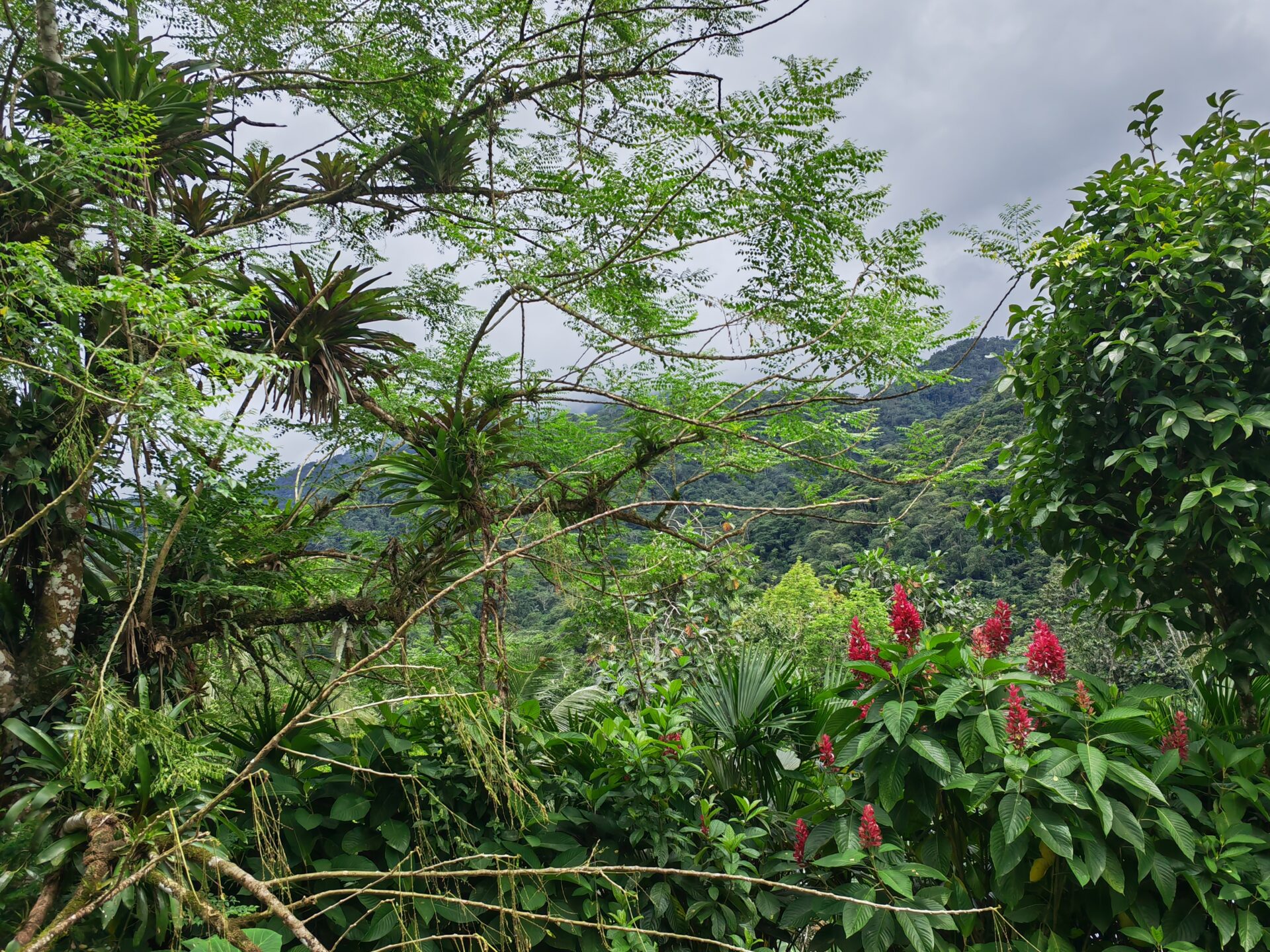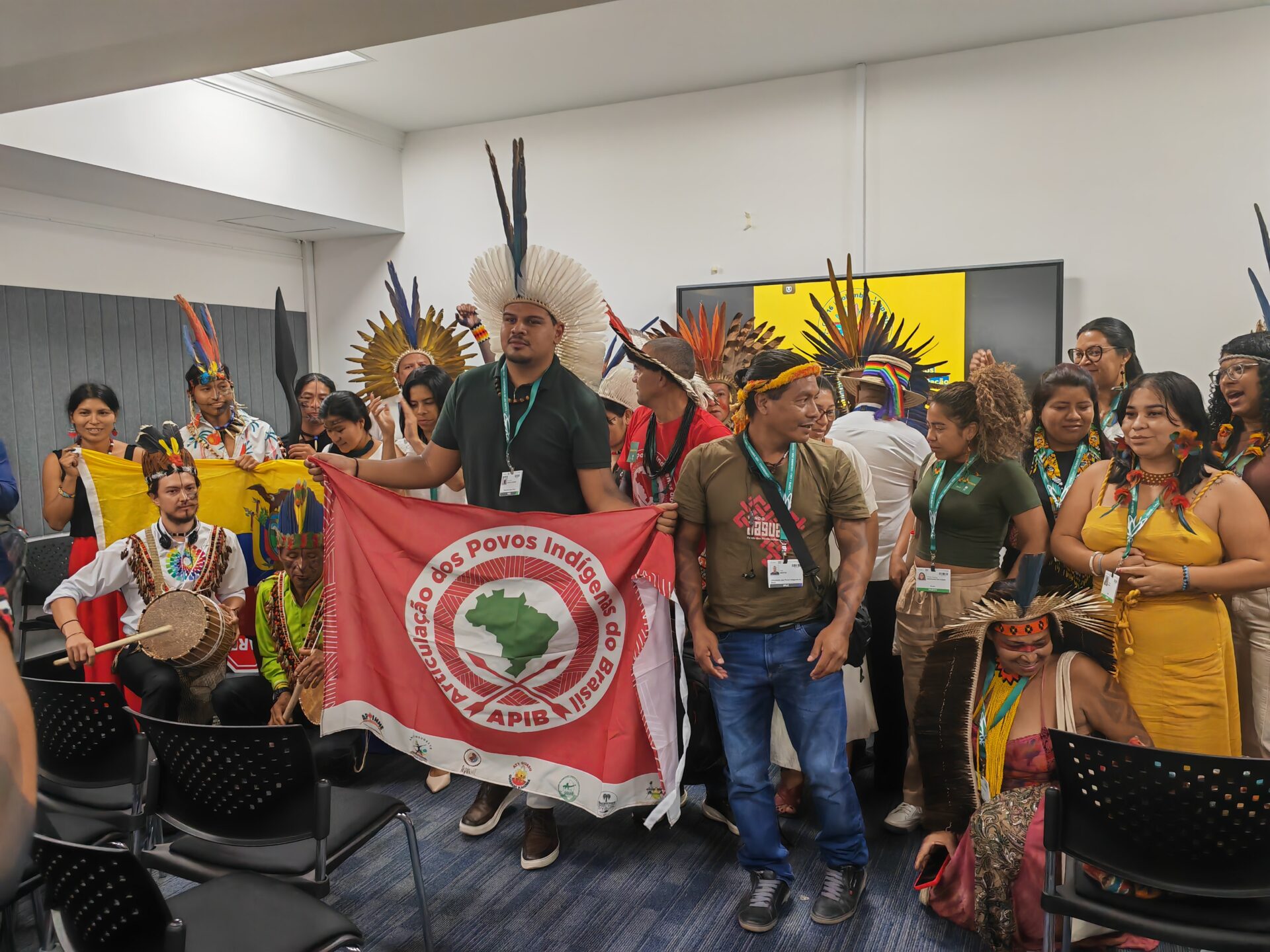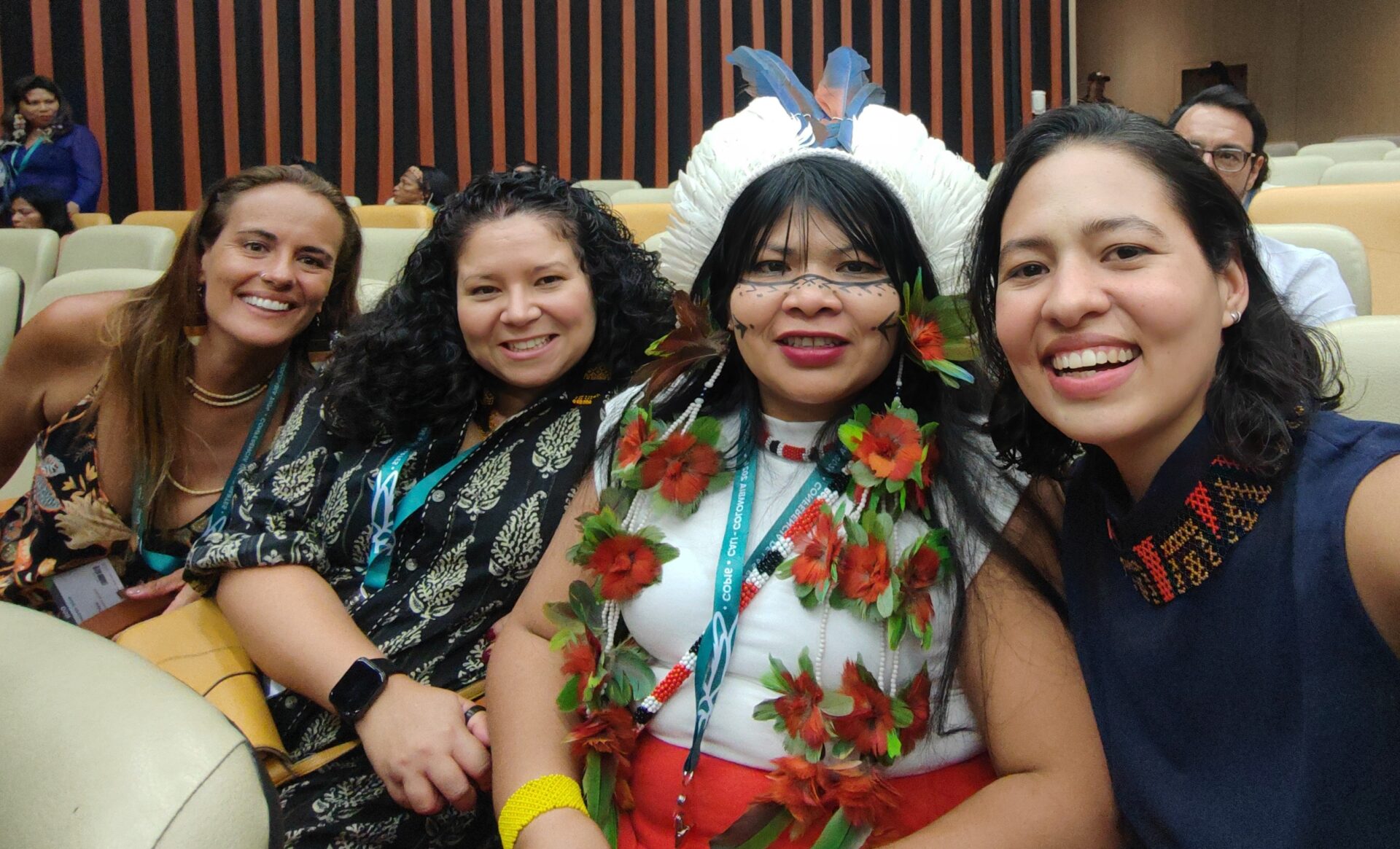Grace Iara Souza, lead convenor of the Alliance for the Amazon and Beyond, travelled with our partner Synchronicity Earth to Cali in October to assist Indigenous custodians in advocating for the protection of their knowledge, practices, and the more-than-human-natures they live alongside in their territories. She shares her reflections on the 16th Convention on Biological Diversity, informed by her experiences with colleagues and Indigenous people involved in the negotiations.
As the October sun cast its golden glow over Cali’s emerald peaks, amid world leaders and delegates, some of Earth’s most devoted custodians brought ancient wisdom to a space largely dominated by deals and offsets. The 16th Convention on Biological Diversity (CBD) saw some historic steps forward for Indigenous peoples. However, as anticipated by many, the results reflected the dominance of different interests blocking meaningful decisions at this time of the polycrises.

The Nasa Kiwe Indigenous Reservation “La Delfina” in Valle del Cauca
The Gaia Foundation has a longstanding affectionate alliance with Brazil’s rainforest custodians, especially from the Amazon and the Atlantic Forest, dating back to our roots, which formed there over 40 years ago. With this year’s CBD taking place in Colombia, the Amazon was central to many discussions throughout the conference. As Lead Convenor for The Gaia Foundation’s Alliance for the Amazon and Beyond and the Latin American Affiliate for Synchronicity Earth, I travelled to Cali to support the participation of the rainforest’s custodians in these conversations. This included supporting the Indigenous Commission Guarani Yvyrupa (CGY) in preparation for events to increase the visibility of custodians of the Atlantic Forest and Pampas in international forums.
On the eve of the conference, Gaia’s longstanding Colombian partner, Gaia Amazonas, published new findings revealing a 23% decline in ecological connectivity in the Amazon, with a further 13% (108 million hectares) at immediate risk. This connectivity supports the biodiverse fabric of life that depends on the rainforest and pumps ‘the flying rivers’, sustaining the rain cycles across the Amazon forest from the Atlantic to the Andes.
While it is ever more critical to stand with Earth’s defenders, including in these fora, the impact of conferences like the CBD is increasingly contentious.
Reflecting on the ensuing conversations, writer and researcher, Jim Thomas, critiqued the growing obsession with balance sheets and calculations and measuring the immeasurable at these fora. “They condensed around a biodiversity financialisation agenda of ‘nature positive’ biodiversity offsets, 30×30 conservation targets, debt for nature swaps and shiny new digital and genomic technologies (or “innovative solutions” as some prefer to tag them). The CBD 4.0 agenda brings welcome youth energy but also attracts types who are very interested in numbers – particularly how much money is being pledged for ‘Nature’, which is now a measurable thing like ‘Carbon’.”
This way of thinking is worlds apart from those who live in the bioculturally rich places we so need to protect. During my time in Cali, I shared many experiences with Indigenous peoples from Brazil who expressed their deep concerns about attempts to add price values to our more-than-human kin. Ju Kerexu from the Commission Guarani Yvyrupa firmly advocated that one cannot assign a price to Mother Nature, Uncle River, or Mountains.

Indigenous peoples from Brazil at Biodiversity COP 16
Beyond the commodification of nature, several Earth custodians felt the negotiations were extremely disconnected from the realities they are witnessing in their territories. Significant droughts, floods, and food insecurities went largely unaddressed, a further reason why Indigenous representation in these spaces is important. I was fortunate enough to visit a Colombian Indigenous Territory, the Nasa Kiwe Indigenous Reservation “La Delfina” in Valle del Cauca, as part of the Nature and Culture Summit, hearing from local Indigenous Peoples about the journey in fighting for the recognition of their Land and the importance of their sacred territory for their cosmological practices.
During the conference, long-term Gaia Associate, Martín von Hildebrand, assumed the role of Secretary-General of the Amazon Cooperation Treaty Organization: an intergovernmental alliance formed by eight Amazonian countries. Martín has a significant history of pioneering the recognition of Indigenous territories in Colombia. This new role will allow him to promote policies that protect the Amazon and ensure that the ecological interconnections between this vast ecosystem and Andean cities are properly understood and valued.
An important conference outcome concerning Indigenous knowledge was the historic approval of Article 8(j), finally giving Afro-descendant communities a permanent role in the negotiations. While formally recognising the need to respect, protect and maintain the knowledge, innovations and practices of Indigenous peoples is a significant step forward in this space, there was a distinct feeling of caution on the ground. Many of my colleagues had reservations regarding how their participation would unfold in future years. Similarly, in relation to other Articles, there was hesitancy from traditional communities, including the Guaranis, over the translation and commodification of their knowledge within broader scientific communities.
These conversations, formal and informal, will support the Alliance for the Amazon and Beyond in preparations for COP30, taking place in Brazil in November 2025.

Grace Iara Souza (middle left) and colleagues from Instituto Juruá and the Commission Guarani Yvyrupa
